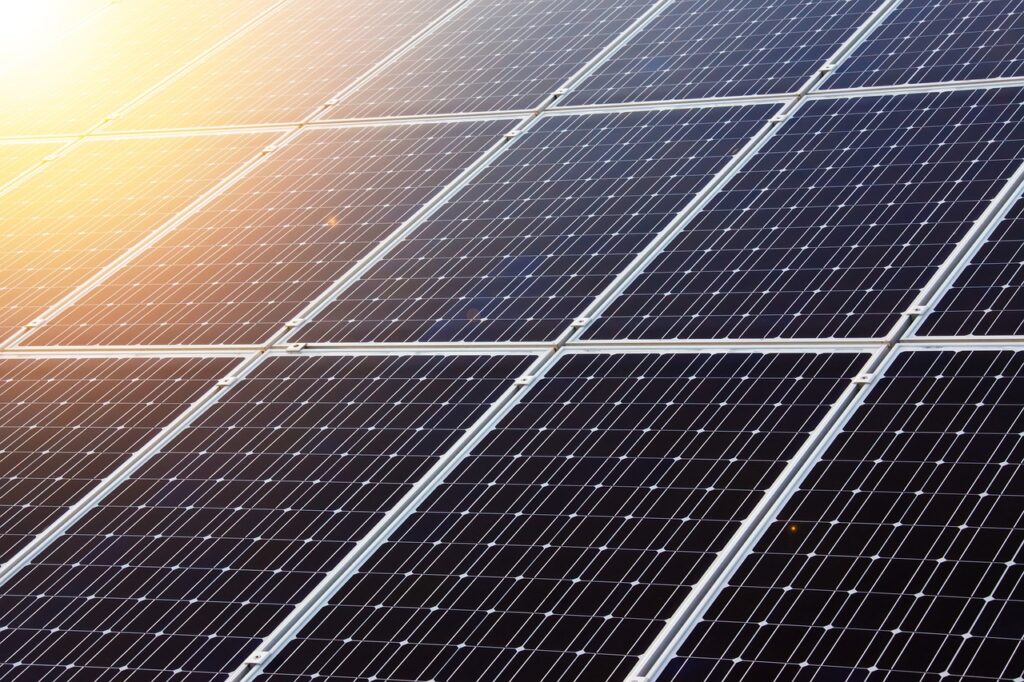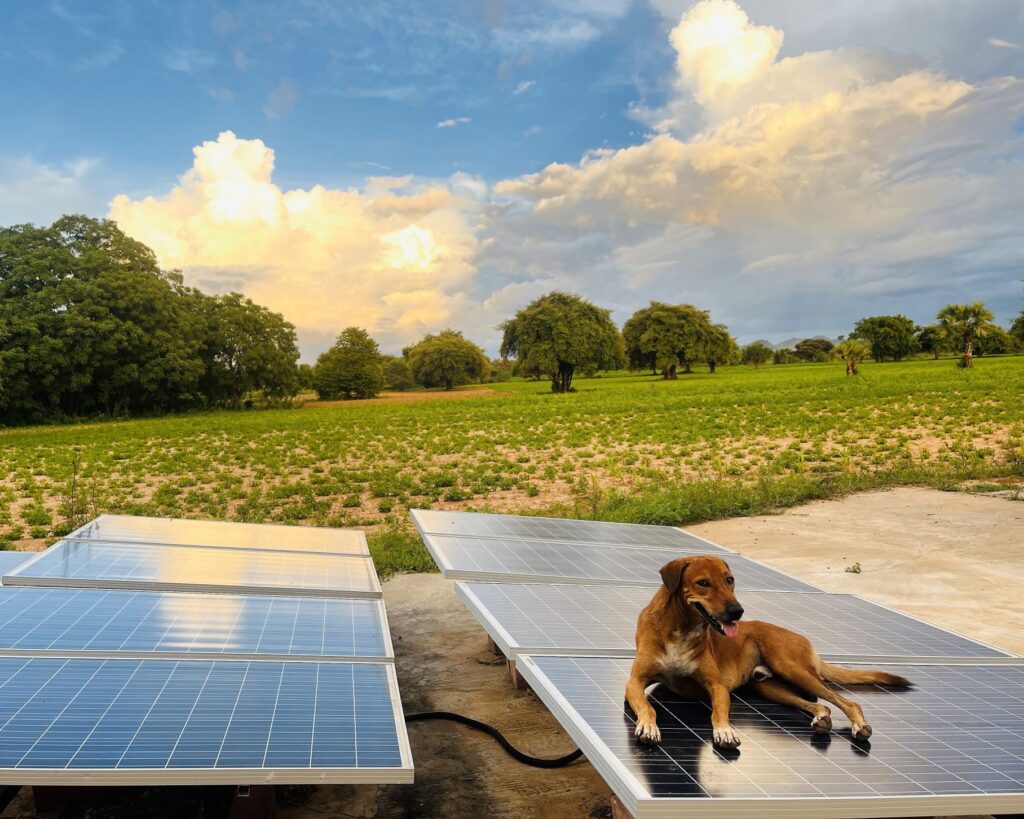Frequently
asked
questions
Can't find what you're looking for?
Contact us and we'll provide the answers.


Solar energy is the energy that is generated from the sun’s rays. Solar panels are made up of photovoltaic cells that capture this energy and convert it into usable electricity. When sunlight hits a solar panel, it knocks electrons in the cells loose, which creates a flow of electric current. This current is then captured and directed to an inverter, which converts it from DC to AC electricity that can be used in your home or business.
A solar panel works by capturing the sun’s energy and converting it into DC electricity. Solar panels are made up of photovoltaic cells, which are connected in a series and covered with a protective layer. When sunlight hits the cells, it knocks electrons loose, which creates a flow of electric current. This current is then captured by wires and directed to an inverter, which converts it from DC to AC electricity that can be used in your home or business.
An inverter is a device that converts DC electricity from solar panels into AC electricity that can be used to power your home or business. It is an essential component of a solar panel system because most appliances and devices in your home or business run on AC electricity. Inverters come in several types, including string inverters, microinverters, and power optimizers. The type of inverter you choose depends on the size and type of your solar panel system.
The cost of solar panels varies depending on several factors, including the size of the system, the type of panels used, and the complexity of the installation. Generally, the cost of a solar panel system can range from a few thousand dollars to tens of thousands of dollars. The cost of solar panels has decreased in recent years due to advancements in technology and increased demand.
Solar panels are designed to last for at least 25 years. However, with proper maintenance, they can last even longer. The lifespan of solar panels can be affected by several factors, including the quality of the panels, the location and climate of your home or business, and the amount of sunlight the panels receive.
Solar panels can still generate electricity in cloudy or rainy weather, although they may not be as efficient as they are in direct sunlight. However, even on cloudy days, solar panels can still generate enough energy to power your home or business.
Solar panels require very little maintenance. Generally, you will only need to clean the panels a few times a year to ensure maximum efficiency. To clean your panels, simply spray them down with a hose or use a soft cloth and mild soap. Avoid using abrasive cleaners or scrubbing the panels too hard, as this can damage them.
Solar panel systems can be installed on a variety of surfaces, including rooftops, ground mounts, and carports. The type of installation you choose depends on several factors, including the size of the system, the location of your home or business, and the available space. Rooftop installations are the most common, as they typically require less space and can be integrated seamlessly into the design of your home or business.
The amount of energy your solar panel system can generate depends on several factors, including the size of the system, the efficiency of the panels, and the amount of sunlight your home or business receives. The amount of energy generated can also be affected by factors such as shading, weather, and the angle and orientation of the panels. Before installing a solar panel system, it’s important to consider factors such as your energy needs, budget, and available space. Our Engineers can help you determine the optimal size and placement of your system and provide you with a detailed cost estimate.
To monitor the performance of your solar panel system, you can use an inverter display, online monitoring tools, or smartphone apps. The inverter display is a built-in feature in most solar panel systems that shows the amount of electricity your panels are producing at any given time. Online monitoring platforms provide real-time data on your system’s performance, including the amount of electricity generated, the energy consumption of your home or business, and any issues or faults in the system. It’s important to check your system’s performance regularly, as any decrease in performance could indicate an issue with the system that needs to be addressed.

